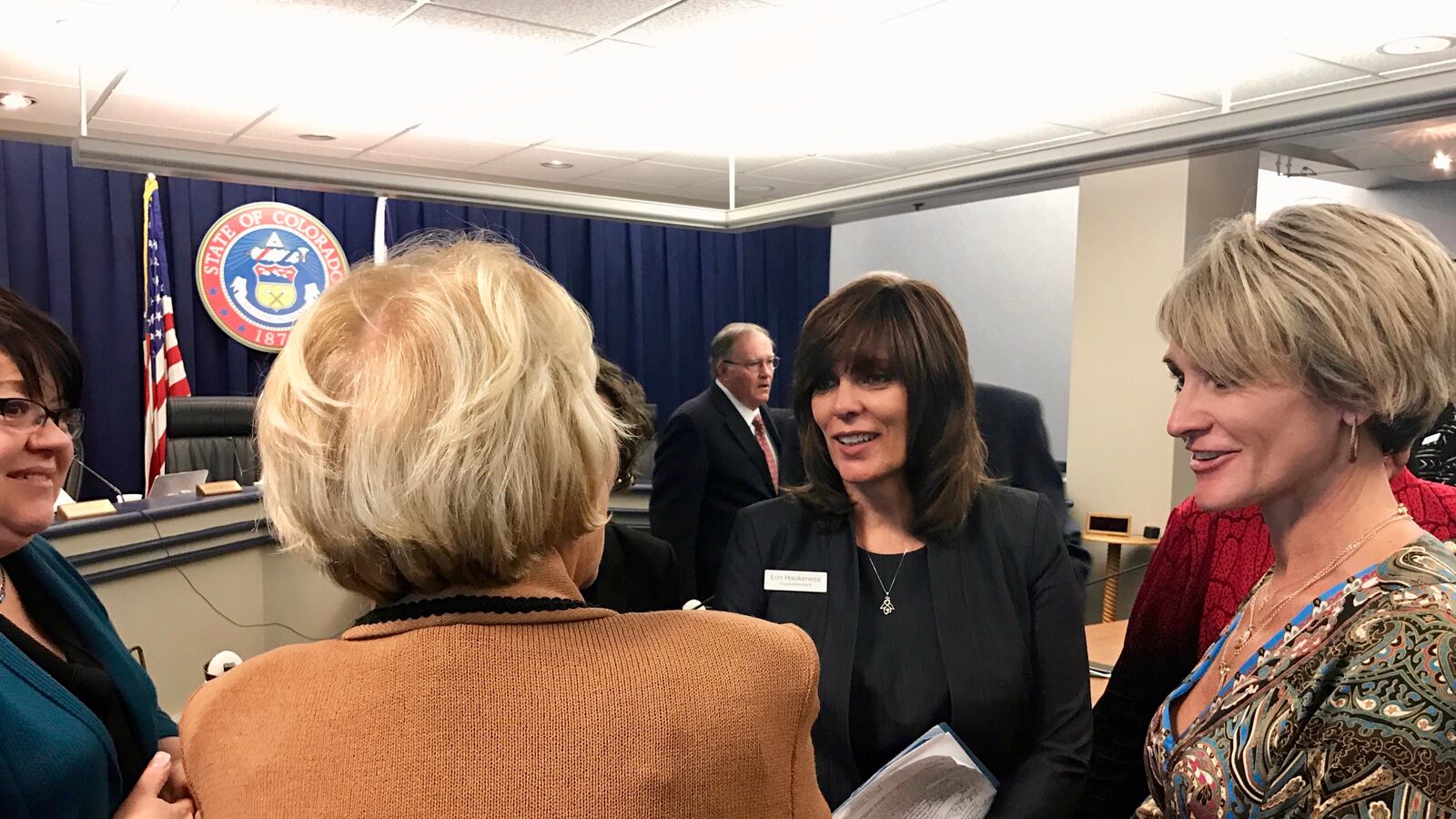The State Board of Education gave initial approval Thursday to plans for turning around two struggling rural school districts, including the closure of a 50-student online school.
The proposed changes for the Montezuma-Cortez and Julesburg school districts are relatively modest. But the board’s action is significant. For the first time in more than a decade, the state is intervening in an attempt to improve persistently low-performing schools.
The plan for 2,800-student Montezuma-Cortez in southwest Colorado calls for expanding a multi-year partnership with the University of Virginia, which will provide training for school leaders and help develop more concrete learning goals at the district’s middle and high schools.
In northeast Colorado, the 600-student Julesburg district will close an online middle school where student achievement lags far behind that of other district schools. The district will keep operating a high school online program that hasn’t experienced the same problems.
The board is expected to formally approve the two plans next month.
This is the first time the state has stepped in to order changes at persistently low-performing schools and districts since a failed effort to turn around a Denver middle school in 2004.
That, however, happened under a previous school accountability law. In 2009, state lawmakers overhauled the law to give the state more options, which run the gamut from school closure to takeover by charter management organizations and less-drastic steps.
The dozen schools and five school districts now facing state intervention all have persistently struggled on state tests. In Montezuma-Cortez, for example, only 10 percent of fourth graders were able to do math at grade level on state tests last year.
On Thursday, board members quizzed Montezuma-Cortez officials about their community engagement and finances.
Two board members asked about early literacy testing, including which language the district uses to identify reading deficiencies in elementary school students. It’s an unrelated issue to the district’s improvement strategy but has preoccupied the state board for months.
Board chairwoman Angelika Schroeder, a Boulder Democrat, asked the Montezuma-Cortez school district how it planned to get more students to take the state’s math and English tests, which are used in large part to determine school quality.
Colorado has been an epicenter of the testing opt-out movement, which severely complicated how the state was able to rate schools.
Six of the Montezuma-Cortez district’s 10 schools had fewer than 95 percent of students take state PARCC tests last spring.
Superintendent Lori Haukeness told the board her district is actively engaged in encouraging students to take the test.
“We can’t tell the story of how our students are doing if we don’t have the data,” she said.
Schroeder also pushed the Julesburg superintendent on his schools’ low testing participation. She said taxpayers of Colorado ought to know how the district’s brick-and-mortar schools are faring.
Shawn Ehnes, Julesburg’s superintendent, said he thinks school quality should be measured by more than just one standardized test — a common sentiment among Colorado educators.
Ehnes told the board “the local taxpayers know how the students are doing.”
Board member Steve Durham, the only member to oppose closing the online middle school, said he thought the state board could be violating a state law that prohibits the state from penalizing schools if a large number of students opt-out of taking state tests.
During the meeting, Julesburg officials claimed that many of the students who didn’t take the state’s tests at the online middle school were high achievers, driving down the schools’ scores.
About 33 seventh graders were doing math at or above grade level in 2014, according to state tests. That’s the last year of publicly available data on the middle school.
Durham, a Colorado Springs Republican, also said he felt the district and state were choosing to close the school because it was an online school.
“I think we’re taking the easy way out here,” he said, suggesting that none of his colleagues would consider closing a traditional school. “I’d like to be technology neutral as we move forward.”
The district has pledged to work with each family of the online middle school’s 50 students to find new schools for them.
Despite the potential for conflict over state-ordered changes, Thursday’s meetings were mostly benign.
“The department and the districts we’ve been working with have been working in collaboration for quite some time to come up with the best options for students,” said Katy Anthes, the state education commissioner. “And because we have that joint ownership — that’s why it wasn’t as dramatic.”

